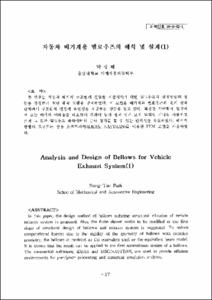정보화시대에서의 국가안보
- Alternative Title
- National Security in the information Age
- Abstract
- 정보화가 급속히 진행 중인 현재의 추세가 지속되면 정치, 경제, 사회, 문화적 관계는 물론 국제적 ?喚瓦? 있어서 그 이전과는 전혀 다른 새로운 변화가 일어날 것이다. 특히 현대 전쟁의 중심에 있는 군사정보화기술의 발달은 기존의 국가안보 개념을 바꾸게 될 것인 바, 세계의 선진 제국들은 21세기 정보화시대에 대비하여 자국의 특성에 맞는 안보정책을 수립하여 추진하고 있다. 특히 군사안보정책 부문에 있어서 '군사기술혁명' 또는 '군사부문혁명'이 도모되고 있는데, 이는 경제적 부담을 줄이면서도 안보의 효율을 극대화하기 위한 시도로서, 21세기 새로운 헤게모니 경쟁을 위한 필수적인 과업인 셈이다. 우리의 경우는 아직 이 부문에 관한 적극적인 태도난 확고한 개념이 정립되지 않은 상태이나, 안보정보화는 시간을 다투어 추진하지 않으면 안되는 과제인 것이다. 바람직한 한국의 군사안보 정보화정책의 방향은 이러한 변화를 적극적으로 수용한다는 전제 위에서, 모든 경계를 재구성 한다는 차원으로 군 구조를 개편하며, 새로운 위협인 정보전에 대비한 정보전 부대를 창설해야 하고, 다른 한편으로는 정보화기술의 종속을 회피하기 위한 독자적 군사정보화기술의 개발를 도모하며, 나아가 군사력 운용 및 예산 편성상의 문제점을 보완해야 한다. 물론 이러한 방향의 안보정책이 성공하기 위해서는 불확실성의 21세기에 대비한 국가이익과 국가목표에 대한 명확한 합의 도출과 '정보화마인드'가 절대적으로 필요하다.
The trend of continuous rapid informatization might lead us to a stage, in which new changes, absolutely different from the past and by now, would happen not only in political-, economic-, social- and cultural-, but in international relations. The military information technology has been at the center of modern warfare, and will eventually change the concept of 'national security'. Each of the advanced countries, preparing for the information age of the 21st century, has already been pursuing a peculiar national security policy of its own. Especially in the military security policy, aiming at minimization of economic burden and maximization of security efficacy simultaneously, they intend to adopt a 'military technical revolution'(MTR) or a 'revolution in military affairs'(RMA), which will be most required for the hegemony competition in the 21st century. As for Korea, it has not yet grasped a clear concept or taken an active position in this field. But the situation is very demanding. Desirable policy options for Korea are as follows: first, we have to voluntarily accept this drastic change of civilization; second, to re-form the military force structure; third, to activate and employ an 'information army', which will consist of information warriors; fourth, to develop our own military information technology, for avoiding technological dependency; and lastly, to correct the faults in employing military forces and assigning defense budget. Of course, a success of these policy options will be guaranteed with a clear consensus on the concept of national interest and national objectives coping with the uncertainties of the 21st century, as well as everyone's 'information-mindedness', which means they regard information as their raison-etre.
The trend of continuous rapid informatization might lead us to a stage, in which new changes, absolutely different from the past and by now, would happen not only in political-, economic-, social- and cultural-, but in international relations. The military information technology has been at the center of modern warfare, and will eventually change the concept of 'national security'. Each of the advanced countries, preparing for the information age of the 21st century, has already been pursuing a peculiar national security policy of its own. Especially in the military security policy, aiming at minimization of economic burden and maximization of security efficacy simultaneously, they intend to adopt a 'military technical revolution'(MTR) or a 'revolution in military affairs'(RMA), which will be most required for the hegemony competition in the 21st century. As for Korea, it has not yet grasped a clear concept or taken an active position in this field. But the situation is very demanding. Desirable policy options for Korea are as follows: first, we have to voluntarily accept this drastic change of civilization; second, to re-form the military force structure; third, to activate and employ an 'information army', which will consist of information warriors; fourth, to develop our own military information technology, for avoiding technological dependency; and lastly, to correct the faults in employing military forces and assigning defense budget. Of course, a success of these policy options will be guaranteed with a clear consensus on the concept of national interest and national objectives coping with the uncertainties of the 21st century, as well as everyone's 'information-mindedness', which means they regard information as their raison-etre.
- Issued Date
- 1998
- Type
- Research Laboratory
- Alternative Author(s)
- Kim, Joohong
- Publisher
- 사회과학논집
- Language
- kor
- Rights
- 울산대학교 저작물은 저작권에 의해 보호받습니다.
- Citation Volume
- 8
- Citation Number
- 2
- Citation Start Page
- 165
- Citation End Page
- 192
- Appears in Collections:
- Research Laboratory > Journal of social science
- 파일 목록
-
-
Download
 000002024663.pdf
기타 데이터 / 857.5 kB / Adobe PDF
000002024663.pdf
기타 데이터 / 857.5 kB / Adobe PDF
-
Items in Repository are protected by copyright, with all rights reserved, unless otherwise indicated.